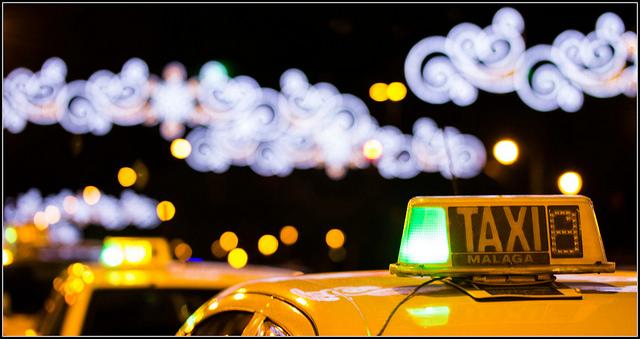By Audrey Cooney, news correspondent
A collection of Boston taxi owners and two taxi drivers have filed a lawsuit against the City of Boston.
Raphael Ophir, Joseph Pierre and the Boston Taxi Owners Association are claiming that the continued operation of Internet-based car services such as Uber, Lyft and Sidecar, also referred to as Transportation Network Companies (TNCs), free from the regulations placed on taxis, deny taxi owners their constitutional rights.
They believe that the equal protection clause of the 14th Amendment, which states that no government may “deny to any person within its jurisdiction the equal protection of the laws,” is interpreted to mean that those in similar situations must be given the same treatment.
According to the suit, which was filed on Jan. 16, the plaintiffs hold that the city is giving the car services an unfair advantage, one which negates the value of the expensive taxi licenses, commonly referred to as medallions. Taxi owners are required by law to purchase these, and they can cost hundreds of thousands of dollars.
The suit, which names Boston Police Commissioner William Evans, the Department of Public Utilities, the Massachusetts Department of Transportation and Massachusetts Secretary of State William F. Galvin as codefendants, goes on to say that car companies provide the same service offered by taxis, yet are not burdened with the same regulations.
The suit also lambasts the new regulations proposed by former governor Deval Patrick toward the end of his term. These new guidelines would give the state Department of Public Utilities the authority to regulate the car services. The plaintiffs hold that this would allow TNCs to operate “with little or no oversight while continuing to subject licensed taxicab medallion owners and licensed taxi drivers to stringent, economically oppressive regulations.”
The plaintiffs also claim that the new regulations would “create an irrational, two-tiered regulatory system that unconstitutionally harms the economic property interests of taxicab medallion owners and drivers.” On the same day that the suit was filed, the plaintiffs also filed an emergency appeal, asking that the states not enact the new regulations.
Not everyone believes that the current level of regulation is an unfair one.
“I think Lyft and Uber should be regulated, but that it does not make sense to subject them to the same regulations as taxis,” Rashmi Dyal-Chand, a professor of law at Northeastern, said. “These ride-sharing services are different from taxis, and it is important to recognize those differences in crafting regulations that protect the interests of all parties involved, including the drivers, consumers and those who produce the apps, set the prices and manage other aspects of the services provided.”
The lawsuit is only the latest in the continuing feud between taxis and TNCs. Since their rise to popularity last year, there has been a swirl of controversies surrounding the less traditional mode of transport. The Boston Globe reported in December that a driver for Uber was facing charges for kidnapping and sexually assaulting a female customer.
There have also been allegations that Uber employees have suffered mistreatment at the hands of the company. The magazine Jacobin ran a story last September detailing how the company’s drivers are underpaid and often arbitrarily fired.
The City of Boston has, for the most part, looked favorably on internet-based car services. Toward the end of his term, Patrick put forward new guidelines for the regulation of TNCs, hoping to allow such businesses to expand. Patrick’s rationale was one of encouraging innovative business models.
“Because this is ongoing litigation, we can’t comment on the legal action,” Melina Schuler, Mayor Martin J. Walsh’s press secretary, said. “However, the Walsh administration is continuing our work with the transportation-for-hire community through the Taxi Advisory Committee to develop a comprehensive new policy that will balance the needs of residents and all transportation-for-hire services in the City of Boston.”
Photo courtesy Marta Diarra, Creative Commons.









